Growth through Exploration and Fun Past Review
By A student (Berea College) - abroad from 09/26/2016 to 07/31/2017 with
Kyushu University: Fukuoka - Direct Enrollment & Exchange
The things I learned about Japanese culture in class, I actually got to see in real life. I learned so much about Japan, and also my view of the world has increased and changed drastically. I now know how another people live and it really gives me ideas on what we can improve back home. It was the most worthwhile thing I have ever done in my life. I got to see how people live life in such an upper class society, and after seeing such fortune, I realize how fortunate I am. It opened my eyes that I can do more for those who don't have this reality, and I want to do more volunteer work.
Review Photos
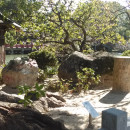
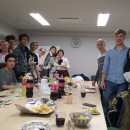
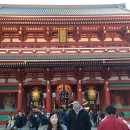
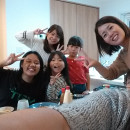
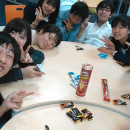
Personal Information
| How much international exposure did you have prior to this program? | None |
Review Your Program
|
* Overall educational experience
Academic rigor, intensity, resources, etc. |
|
|
* Host Country Program Administration
On-site administration of your program |
They were always very helpful, especially in times of dire need. |
|
* Housing:
How satisfied were you with your living arrangements? |
Very happy to have my own little apartment all to myself to call home for the year. |
| * Food: |
Very delicious and got to try all sorts of dishes with friends. |
|
* Social & Cultural Integration:
How integrated did you feel with the local culture? |
Japanese are very in-group out-group people. They are very nice to you on the surface, but they never let you into their hearts until you are with them 24/7 and doing all of the social obligations. It got tiring and I gave up because I was lonely. |
|
* Health Care:
How well were health issues addressed during the program? |
Health care was very affordable and good. However, they do not tend to women's health very well. For instance, rape kits were not available at hospitals, and the morning after pill was not covered by health insurance and cost $150 up front. |
| * Safety: |
It's very safe, however rape culture is very prevalent so always bring your male foreigner friends to protect you. They (Japanese men) respect men more than women's agency and autonomy. |
| If you could do it all over again would you choose the same program? |
Yes
JTW program makes sure you get to travel outside of the program. The courses are not too demanding, giving you time to explore the surrounding areas. They really took care of us at every turn so that we could have the best experience. |
Finances
|
* Money: How easily were you able to live on a student's budget?
(1 = not very easy/$200+ on food & personal expenses/week, 2.5 = $100/week, 5 = very easily/minimal cost) |
As long as you are not shopping for clothes or going out every night, you can live comfortably and even get a vegan diet, even though that is very expensive in Japanese society. |
| Not including program expenses, about how much money did you spend on food and other expenses each week? | Maybe around $100 on food; $40-50 for going out once a week; |
| Do you have any general money-saving tips for future study abroad participants? | Always bike along the less highway like roads where the local farmers sell their produce for very cheap. It's good quality still but a fourth of the price at the store. Always go to Lumieru, not Aeon, for your grocery shopping. |
Language
| * Did your program have a foreign language component? | Yes |
|
How much did the program encourage you to use the language?
0 = No encouragement, 5 = frequent encouragement to use the language |
|
| How would you rate your language skills at the beginning of the program? | Beginner |
| How would you rate your language skills at the end of the program? | Intermediate |
| What was the highest level language course you had completed prior to departure? | Intermediate |
| How many hours per day did you use the language? | |
| Do you have any tips/advice on the best ways to practice the language for future study abroad participants? | Study, study, study before you go abroad. Studying katakana is helpful for reading store signs. Studying Kanji will help you with looking at signs and maybe making out what they are wanting to say, as well as with paper work. Make sure you know important words like address, train station, university, library, and the word study. Introductions are easier if you make a script and then cite that every time you have to introduce yourself. |
Other Program Information
|
* Where did you live?
Select all that apply |
|
|
* Who did you live with?
Select all that apply |
|
|
* Who did you take classes with?
Select all that apply |
|
| About how many local friends did you make that you will likely keep in touch with? |
A Look Back
| * What did you like most about the program? |
|
| * What could be improved? |
|
| * What do you know now that you wish you knew before going on this program? | To be chill with your fellow JTW students and hang out with them as much as possible. Japanese people are amazing, but the ones who hang out with international students will be the only ones that will actually be life-long friends as they are not as shy and can make connections with you easier. |








